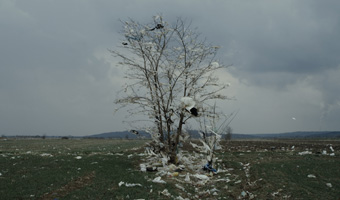Depth two
Dubina dva
Ognjen Glavonić

A refrigerated lorry filled with bodies floating on a river. A muddy ditch in the outskirts of Belgrade. Between the two of them are 17 years of silence.
Screenplay : Ognjen Glavonić
Image : Tatjana Krstevski
Editing : Jelena Maksimovic
Image : Tatjana Krstevski
Editing : Jelena Maksimovic
Production : Cinéma Defacto, Non-Aligned Films, Humanitarian Law Center
International sales: Heretic Outreach, Contact – Ioanna Stais, Promitheos 18, 15234 Athens, GREECE // +30 210 600 52 60 // ioanna@heretic.gr // www.heretic.gr
International sales: Heretic Outreach, Contact – Ioanna Stais, Promitheos 18, 15234 Athens, GREECE // +30 210 600 52 60 // ioanna@heretic.gr // www.heretic.gr

Ognjen Glavonić was born in Yugoslavia in 1985. He studied at the Fine Arts University in Belgrade, graduating in film directing in 2011. His graduation film, Made of Ashes (2012), is part of the omnibus film October, selected at Premiers Plans in 2013. Zivan Makes a Punk Festival, his first feature documentary, premiered at the 2014 Cinéma du Réel Festival. Dubina Dva (Depth Two), a creative documentary, was selected for the Forum of the 2016 Berlin International Film Festival. Ognjen Glavonić is also the director and co-founder of the Pancevo International Film Festival in Serbia.
“Victims don't ask for much. They want dignity, they want others to acknowledge their pain and suffering, but in this region victims are always used to gain political points. Politicians speak about them only when they need to compare them to the victims of ‘others' to show that their pain and losses are greater. So, the idea was to use a different logic when we speak about the war, to try to fix the logic that has been broken by nationalism and the propaganda of denial.” (Ognjen Glavonić)
“Victims don't ask for much. They want dignity, they want others to acknowledge their pain and suffering, but in this region victims are always used to gain political points. Politicians speak about them only when they need to compare them to the victims of ‘others' to show that their pain and losses are greater. So, the idea was to use a different logic when we speak about the war, to try to fix the logic that has been broken by nationalism and the propaganda of denial.” (Ognjen Glavonić)
